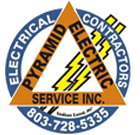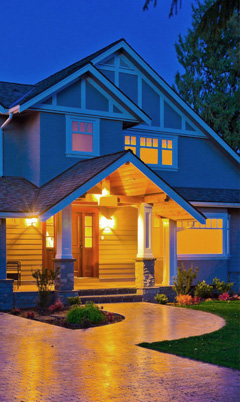An electrician can help reinforce your property’s security
Residential electricians in Charlotte, Waxhaw, and Weddington areas can help make your home safer. Ensuring the security of your home’s electrical installation is crucial for the safety of your property and your loved ones. Electrical hazards can lead to fires, electrocutions, and other dangerous situations if not properly managed. In this first part of our guide, we’ll explore the significance of securing your home’s electrical system and provide some fundamental tips to help you achieve this.
- Preventing Electrical Fires:
One of the primary reasons for reinforcing the security of your home’s electrical installation is to prevent electrical fires. Faulty wiring, overloaded circuits, and damaged electrical components can all contribute to the risk of fires. By implementing proper safety measures, you can significantly reduce this risk and protect your property from devastating damage.
- Ensuring Personal Safety:
Electric shocks and electrocutions pose a significant threat to personal safety within the home. Faulty electrical installations increase the likelihood of these hazards occurring, especially in areas with high moisture levels such as bathrooms and kitchens. Securing your home’s electrical system helps mitigate these risks, providing a safer environment for you and your family.
- Protecting Electronic Devices:
In addition to the safety concerns, a secure electrical installation also safeguards your electronic devices and appliances from damage. Power surges, caused by various factors including lightning strikes and faulty wiring, can fry sensitive electronics and render them unusable. By implementing surge protection and other safety measures, you can extend the lifespan of your devices and avoid costly replacements.
- Compliance with Regulations:
Many regions have strict regulations governing electrical installations in residential properties. Ensuring compliance with these regulations not only enhances safety but also helps you avoid legal repercussions. By following best practices and seeking professional assistance when needed, you can ensure that your home’s electrical system meets all necessary standards.
Practical Tips for Reinforcing the Security of Your Home’s Electrical Installation
1. Regular Inspections:
Conducting regular inspections of your home’s electrical system is essential for identifying potential hazards before they escalate into major issues. Look for signs of wear and tear, such as frayed wires, loose connections, and overheating outlets. If you notice any abnormalities, it’s crucial to address them promptly to prevent accidents.
2. Invest in Surge Protection:
Surge protectors are devices designed to safeguard your electronics and appliances from voltage spikes. Installing surge protection at key points in your home, such as the main electrical panel and individual outlets, can help mitigate the risk of damage caused by power surges. Additionally, consider using surge-protected power strips for sensitive electronic devices like computers and entertainment systems.
3. Upgrade Outdated Wiring:
If your home has outdated wiring, such as knob-and-tube or aluminum wiring, it may be prone to electrical hazards. Consider hiring a professional electrician to upgrade your wiring to modern standards, such as copper wiring with grounded outlets. This not only enhances safety but also improves the overall reliability of your electrical system.
4. Limit Electrical Overloads:
Overloading circuits with too many devices can lead to overheating and increased fire risks. Be mindful of the electrical load on each circuit and avoid plugging in multiple high-wattage appliances to the same outlet. Distribute your devices across different circuits to prevent overloads and ensure a more balanced electrical distribution.
5. Install Ground Fault Circuit Interrupters (GFCIs):
GFCIs are devices designed to protect against electrical shocks by quickly shutting off power when they detect a ground fault. Install GFCIs in areas where water is present, such as bathrooms, kitchens, and outdoor outlets. These devices provide an extra layer of protection against electric shocks and enhance the safety of your home.
6. Proper Outlet Usage:
Avoid overloading outlets by using multi-plug adapters or extension cords excessively. Instead, utilize additional outlets or have new ones installed by a qualified electrician if necessary. Overloading outlets increases the risk of overheating and fire, so it’s essential to distribute the electrical load properly.
7. Keep Electrical Cords in Good Condition:
Inspect electrical cords regularly for signs of damage such as fraying, cuts, or exposed wires. Replace any damaged cords immediately to prevent electrical shocks or fires. Avoid running cords under rugs or furniture where they can be damaged by heavy objects or foot traffic.
8. Use Tamper-Resistant Outlets:
Tamper-resistant outlets feature built-in safety mechanisms that prevent foreign objects from being inserted into the slots. These outlets are especially important in homes with young children, as they reduce the risk of electrical shocks and injuries. Consider upgrading to tamper-resistant outlets for added peace of mind.
9. Label Electrical Panels and Circuits:
Ensure that your electrical panels and circuits are properly labeled to facilitate troubleshooting and maintenance. Labeling helps you identify specific circuits quickly in case of an emergency or when performing electrical work. It also allows others to understand your home’s electrical layout, enhancing overall safety.
10. Schedule Professional Inspections:
While DIY inspections are beneficial, it’s also essential to schedule periodic inspections by a licensed electrician. A professional inspection can uncover hidden issues that may not be apparent to the untrained eye. Electricians can also provide expert advice on improving the safety and efficiency of your electrical system.
11. Educate Your Family:
Educate your family members about electrical safety practices to ensure everyone understands the importance of proper usage and precautions. Teach children about the dangers of playing with electrical outlets and cords and encourage them to notify an adult if they notice any electrical hazards.
12. Install Carbon Monoxide Detectors:
Carbon monoxide is a colorless, odorless gas produced by incomplete combustion of fuels, including natural gas and wood. Faulty gas appliances or improperly ventilated heating systems can lead to carbon monoxide buildup, posing a significant health risk. Install carbon monoxide detectors in your home to alert you to any dangerous levels of this gas.
In conclusion, reinforcing the security of your home’s electrical installation is essential for protecting your property, ensuring personal safety, and complying with regulations. By following these practical tips and staying proactive about maintenance and safety measures, you can create a secure and comfortable living environment for you and your family. Remember that electrical safety is a shared responsibility, so encourage everyone in your household to prioritize safety and practice good habits.
Top Charlotte Residential Electrical Services Company
Pyramid Electric Services is an experienced professional electrical contracting company serving the Charlotte area, Marvin, Weddington, Mathews, Wesley Chapel, and Waxhaw. We are licensed and insured in North Carolina and South Carolina. When you want the best in residential electrical services and electrical installations, give us a call, at 803-728-5335.

